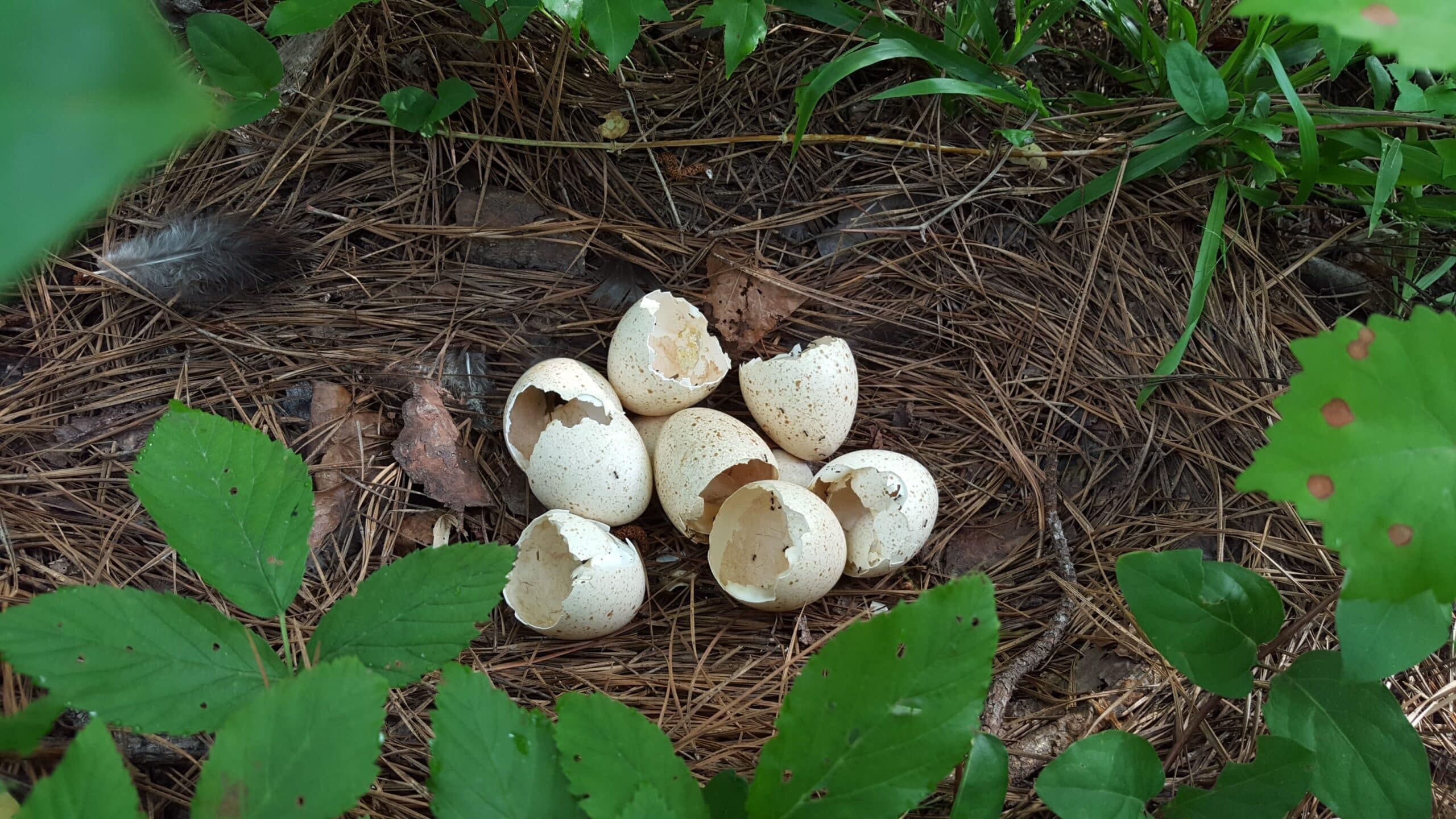Secrets of Wild Turkey Nesting Revealed

Wild turkeys are known to be smart and wily. But did you know that when wild turkeys first hatch out of the egg, they’re able to move around and forage on their own?
The Abstract spoke to Wesley Boone, a postdoctoral researcher at North Carolina State University, to learn some of the basics of wild turkey nesting. Boone is lead author of new study looking into whether climate change will have an impact on the timing of turkey nesting in the Southeast. It’s an important topic given that some recent surveys have shown declines in populations of wild turkeys in the southern U.S.
“In our study, we found that eastern wild turkeys in the South are not flexible; they’re not moving their reproductive period to align with spring green-up,” Boone said.
Read on to learn more turkey facts, and about the researchers’ work:
The Abstract: Where do turkeys nest?
Wesley Boone: When they’re not reproducing, turkeys will generally roost in trees at night to avoid predators. They are a large-bodied bird; they stay up high because they’re a big source of protein. However, the female lays her eggs on the ground, typically in low vegetation that provides some concealment from predators. Regardless, the female is very susceptible to predation while nesting, and her nest is susceptible, too. After the eggs hatch, the juveniles can’t fly yet. These juveniles are like little chicken nuggets. Everything in the forest wants to eat them, and they succeed at catastrophic rates – for the turkey, that is.
TA: When do turkeys lay their eggs?
Boone: Typically in the South, male turkeys initiate breeding behaviors in late winter and nesting is in April, May and into June. If their first nest fails, females will re-nest several times in a season.
TA: What do young turkeys eat?
Boone: I really like this document by NC State Extension. It says “turkeys eat almost anything they can swallow.” But in spring, many plant seeds have been depleted and only limited spring foliage is ready. So, insects are a major part of the mother’s diet, and absolutely vital to her offspring. The poults, or the young turkeys, eat invertebrates ranging from spiders to grasshoppers. Protein sources that are relatively easy to digest are important to support the bone and tissue growth of the turkey poults.
TA: Why is nest timing important for the future of wild turkeys?
Boone: The timing of nesting is important because it impacts when eggs are hatching. If food and cover aren’t there because the timing isn’t aligning with spring green-up, then the poults may need to move more to find appropriate food, making them more susceptible to predation. Amid climate change, that potentially means the resources the poults would depend on for food and cover won’t be there when they hatch.
TA: What is unique about turkey reproduction?
Boone: After they lay their eggs, turkeys incubate their nests for 28 days on average. They have precocial young – which means that when they hatch out, they’re able to move and forage on their own. They have to be able to hide in the cover of low vegetation so they can escape predators from the ground and the air.
TA: Why is turkey hunting season typically in the spring?
Boone: Spring turkey season is often timed intentionally to align with breeding behavior of the males. In North Carolina, hunting is limited to males or bearded turkeys. About a month before nesting begins, the males are gobbling to try to attract females. Turkeys are notoriously skittish, so even during the breeding season when you have the advantage of them wanting to reproduce, they’re still hard to hunt. It’s a real cat and mouse game of: Can you outsmart a bird? And frequently you don’t.
TA: What is a common question that you get about turkeys?
Boone: One common thing people want to know is whether they’re going to be susceptible to climate change. Many other species are, so why would we think this one is different? We are working to try to figure out the ways that they will be susceptible, and to mitigate that.
TA: What’s causing declines in wild turkeys?
Boone: There are probably lots of things causing it, potentially including disease, loss of habitat, increases in nest predators, and over-harvest of males during hunting. There’s a lot of research going on to figure out what the biggest causes are and how can we fix it.
- Categories: